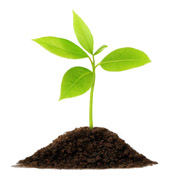Agronomy and Horticulture, Department of
Plant and Soil Sciences eLibrary
Transformation 1 - Plant Tissue Culture
Document Type
Learning Object
Date of this Version
2003
Citation
Plant and Soil Sciences eLibrary (PASSeL) Lesson
Abstract
Overview and Objectives - Tissue Culture
This lesson explains the technique of tissue culture as used in plant transformation. It discusses important issues, such as the use of selectable markers, genotype specificity, and tissue culture alternatives.
At the completion of this lesson, you should be able to:
- List the six things necessary to successfully transform a plant.
- Explain how the process of tissue culture is done.
- Explain why tissue culture is a necessary part of producing a transgenic plant.
- Describe genotype specificity and how it impacts genetic engineering.
- List two alternatives to tissue culture sometimes used in genetic engineering.
- Identify the role of selectable markers and how they are utilized in the transformation process.
Modules:
COinS



Comments
Copyright © 2003 Patricia Hain and Don Lee. Used by permission.
Peer reviewed web lesson JNRLSE approved 2003
Development of this lesson was supported in part by Cooperative State Research, Education, & Extension Service, U.S. Dept. of Agriculture under Agreement Number 98-EATP-1-0403 administered by Cornell University and the American Distance Education Consortium (ADEC). Any opinions, findings, conclusions, or recommendations expressed in this publication are those of the authors and do not necessarily reflect the view of the U.S. Department of Agriculture.